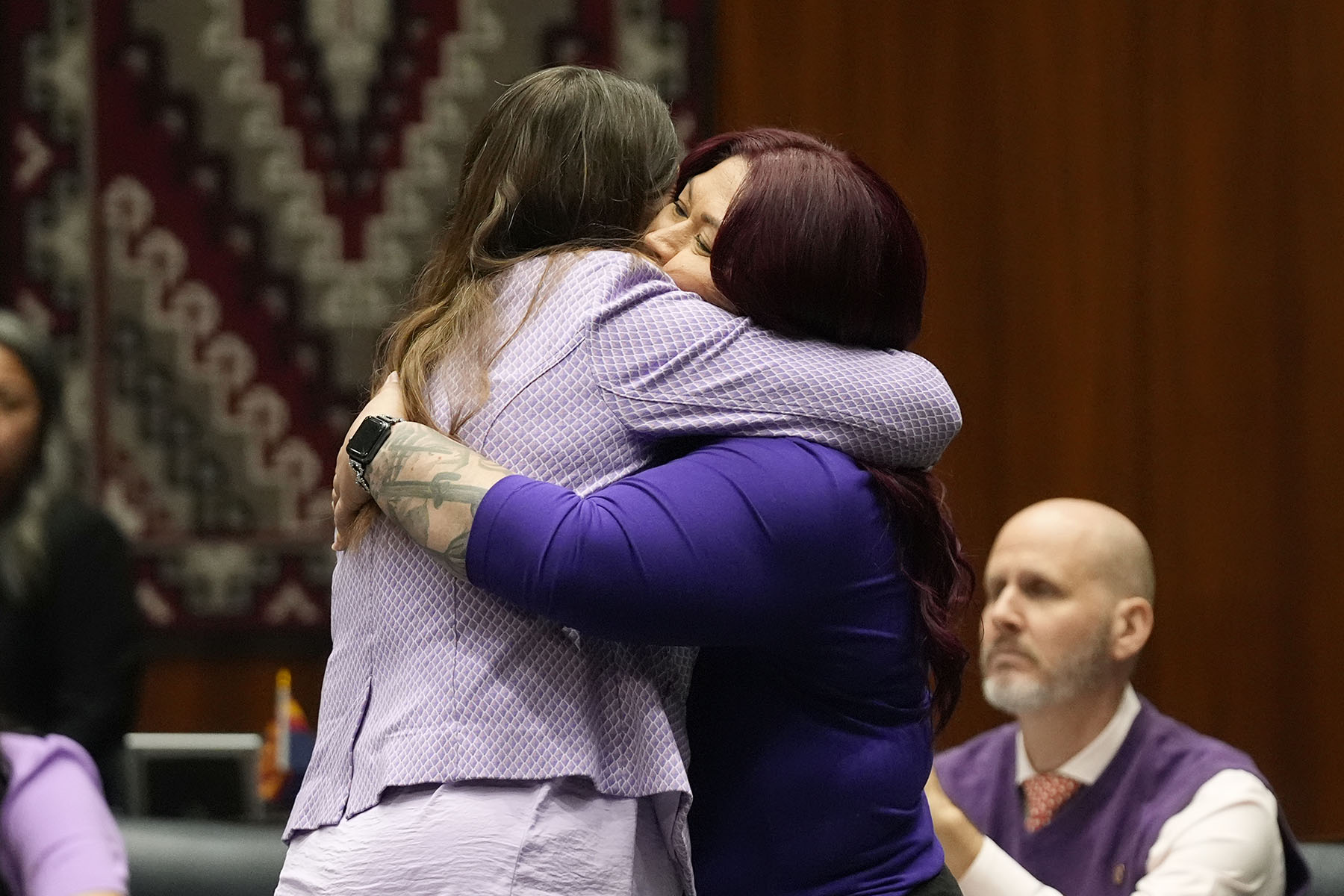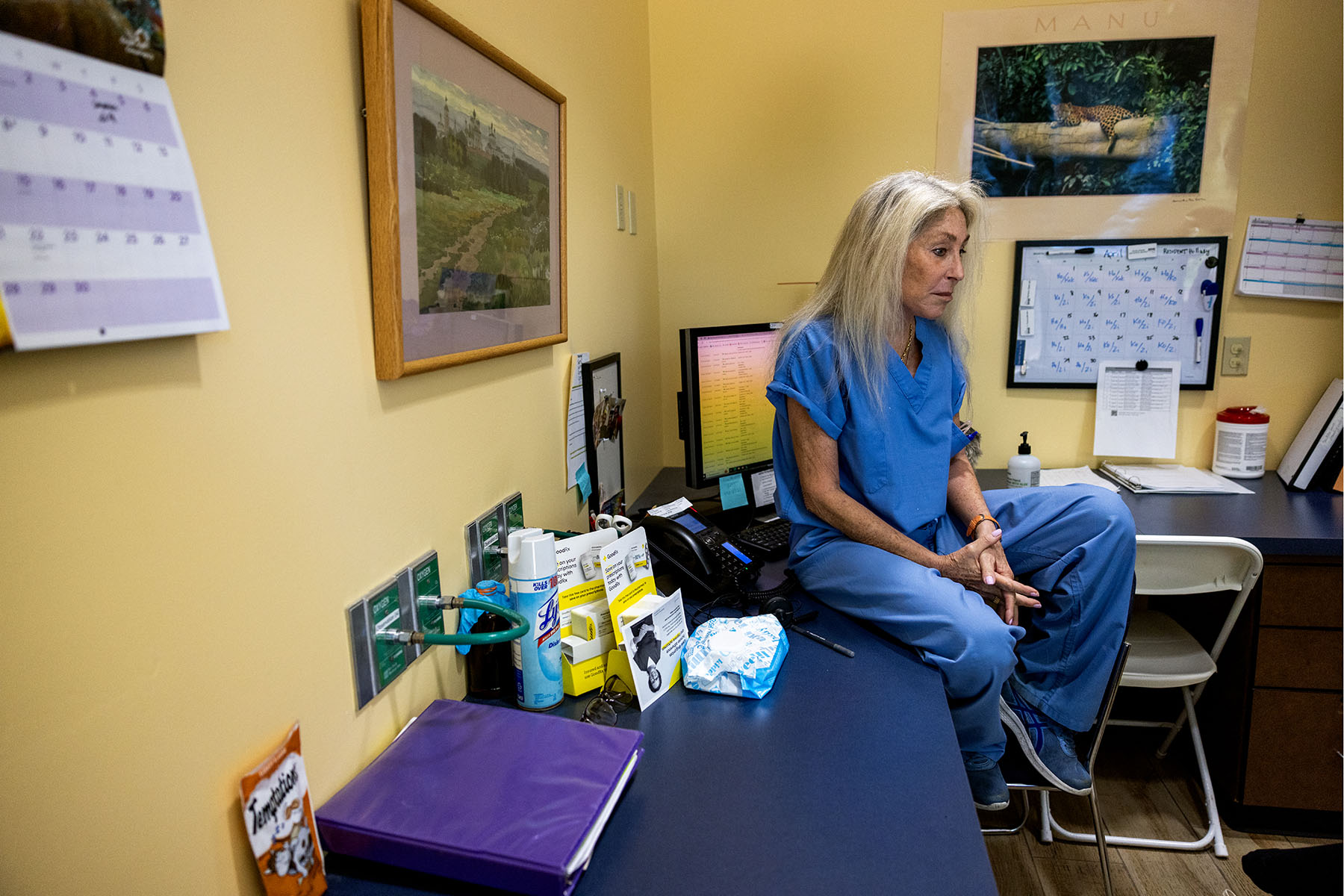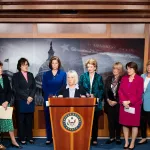Millions of Latinx Floridians and Arizonans started off the month of May with new and looming restrictions on their reproductive health decisions.
Florida, home to the third-largest Latinx population in the country, on Wednesday became the latest state to ban abortions after six weeks of pregnancy, before many people know they are pregnant. In Arizona, a key battleground state and home to the sixth-largest Latinx population in the country, a Civil War-era total abortion ban will go into effect for at least several months until a repeal approved by state lawmakers takes effect.
The changing landscape of abortion restrictions in Florida and Arizona underscores the outsize impact of abortion bans on Latinas, the largest group of women of color impacted by current and likely bans on the procedure, according to multiple analyses. In both states, the sizable Latinx population could play a decisive role in the passage of proposed amendments to enshrine the right to abortion in their state constitutions.
“In many of these places, including Florida and Arizona, inequities for Latinas in terms of health care access were already really great,” said Lupe Rodríguez, the executive director of the National Latina Institute for Reproductive Justice. “Latinos have some of the highest rates of not being insured, and therefore, of not getting preventative health care of many kinds, including preventative reproductive health care. We know that these laws are very, very potentially harmful to the community.”
An analysis by Rodriguez’s group and the National Partnership for Women & Families, published in October, found that close to 6.7 million Latinas — or 43 percent of all Latinas of reproductive age — live in one of the 26 states with restrictions on abortions before fetal viability. Latinas in Florida, Arizona and Texas, where abortion is completely banned, account for one-third of all Latinas of reproductive age in the country.
Latinos have one of the highest uninsured rates in the country, second only to Indigenous Americans, at 20 percent, according to a federal government analysis. The closure of clinics that offer abortions could disproportionately affect health care access among Latinas since the clinics are often “the only entry point that many of them had to care,” Rodriguez said. Her group is in the early stages of a study about the impact of abortion bans and the subsequent clinic shutterings on this population.
The Latina population in the United States trends younger, expanding the impact of bans on reproductive health care decisions. A study from UCLA published in late 2022 found that the share of Latinas who are of childbearing age tends to be significantly higher than that of White women in states that restrict abortion. In Florida, 49 percent of Latinas are between the ages of 18 and 44, compared with 31 percent of White women. In Arizona, the share is 60 percent and 34 percent, respectively.
It’s important to point out that while Latinas make up a larger group of women impacted, the share of Black women living in states with these restrictions is the highest among all women, at 60 percent, according to the Kaiser Family Foundation.
Just over 1 in 10 Latinos are undocumented immigrants, but the impact on these Latinas will be compounded. In Florida, state laws meant to restrict how undocumented immigrants travel will make it harder for these patients to access an abortion, said Isa Ysaosales, who worked with a network of abortion funds in South Florida before joining a progressive group focused on drumming up support for the state’s abortion rights ballot initiative. A new state law signed by Republican Gov. Ron DeSantis makes it a felony for anyone to drive into the state with an undocumented immigrant, adding criminal penalties for family members or volunteers on top of existing fear about deportations.
Ysaosales said Wednesday was a “sad day” for abortion access in Florida as a six-week ban went into effect. The bright spot for abortion rights advocates is that voters in November will get a chance to weigh in on a measure that would protect abortion rights up to the point of fetal viability.
“We know that our tias and our primas and our abuelas have had abortions. We know that a world without abortion has never existed and will never exist. The Latina population knows they are putting our health at risk,” said Ysaosales, who is an immigrant from Chile. “I have faith that we’re going to limit government interference in the state of Florida.”
In Arizona, the abortion access landscape remains muddled. State lawmakers on Wednesday approved a repeal of an abortion ban that predates statehood and was revived by a state court last month. The ban is expected to go into effect in June while its repeal won’t take effect for several more months — 90 days from the end of the legislative session, which could end well into the summer. The timeline creates a gap during which the ban can take effect.
The ban is part of a Civil Rights-era law that makes it a crime to perform an abortion or assist someone in obtaining one — and has no exceptions for rape or incest. Its revival supplanted a ban on most abortions after 15 weeks of pregnancy.
The effort to repeal the ban in the Arizona state Senate was led in part by a Latina lawmaker elected to the chamber in 2022, illustrating the way in which many Latinas are leading efforts to expand reproductive rights.
State Sen. Anna Hernandez, the daughter of Mexican immigrants, said her West Phoenix district has the highest share of Latinx residents in the state. It is also heavily working-class, augmenting the impact of any abortion restriction “because these are people that already have barriers to access the care that is legal now, and they’re not gonna have the resources to get up and travel out of state to seek care,” she said.

Hernandez was part of a group of political leaders and reproductive rights advocates who traveled to the Dominican Republic in December to better understand the effect of a total abortion ban with no exceptions. Her experience there boosted her drive on reproductive rights in the legislature.
Latinas in the Arizona Legislature are not a united front against abortion restrictions. House Majority Whip Teresa Martinez is one of the Republicans who led efforts to block the repeal. According to the Arizona Mirror, she introduced legislation meant to draw voters away from the abortion rights referendum by crowding the ballot with other abortion related measures with titles that suggest they would protect abortion rights.
“In my opinion, removing healthy babies from healthy mothers is not health care nor reproductive care. Pregnancy is not an illness,” Martinez said on the House floor last month.
In the end, Martinez and most of her fellow Republican legislators could not keep the Civil War-era ban alive. Support for the repeal came from Hernandez and 15 other Latina legislators, a group whose representation reached historic highs after last year’s elections.







